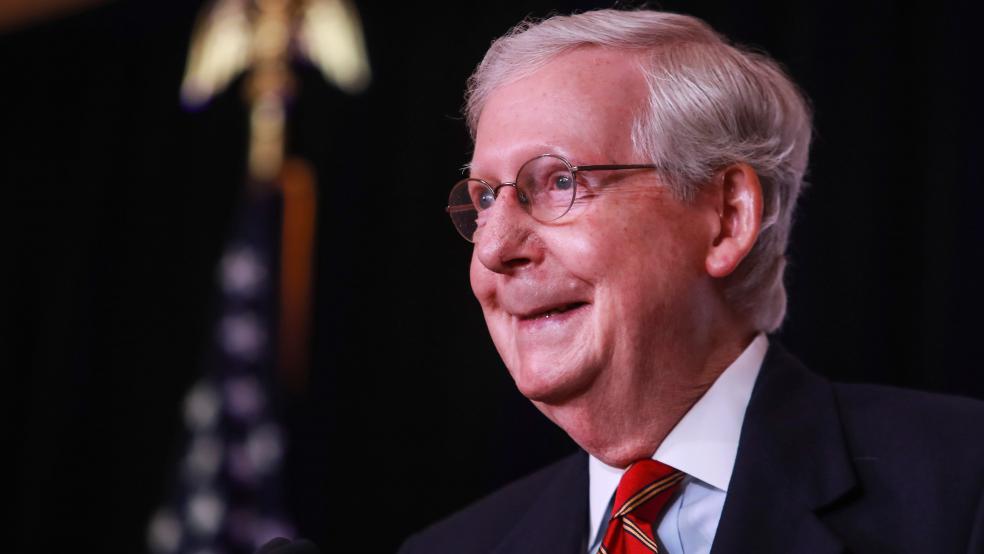The House late Tuesday passed a $768 billion defense policy bill and a separate procedural measure that sets up a fast-track increase in the federal government’s debt limit and delays scheduled cuts in Medicare and other programs.
The procedural bill — essentially allowing for a one-time suspension of the Senate’s filibuster rules — was the result of a deal struck by Senate Majority Leader Chuck Schumer (D-NY) and Minority Leader Mitch McConnell (R-KY). It passed the House by a margin of 222-212 and is expected to get a vote in the Senate on Thursday. If it passes that chamber, Democrats would then be able to raise the $28.9 trillion debt limit on their own, with only a simple majority required in the Senate.
But Republican votes will be needed to get to that point, and Senate GOP members are reportedly divided on the plan, though McConnell has backed it and predicted that enough of his members would do the same. "I’m confident that this particular procedure coupled with the avoidance of Medicare cuts will achieve enough Republican support to clear the 60-vote threshold," he told reporters.
McConnell reportedly approved the extraordinary process because it meets the criteria he set out months ago: forcing the Democrats to raise the debt limit on their own, and to increase it by a specific amount rather than suspend it for a period of time — a combination that Republicans see as ammunition for continued midterm campaign attacks slamming Democrats for their spending. “The red line is intact,” McConnell told reporters Tuesday.
Still, numerous members of McConnell’s conference, including some members of his leadership team, reportedly have pushed back on the plan. “I don’t think Republicans should be facilitating adding trillions in debt,” Sen. Ted Cruz (R-TX) said, according to Politico. And all but one House Republican, Rep. Adam Kinzinger of Illinois, voted against the procedural bill. "Make no mistake. This debt ceiling is being lifted to pay for trillions of wasteful socialist spending," charged Rep. Kevin Brady (R-TX).
Politico’s Burgess Everett and Olivia Beavers laid out some of the factors driving the Republican rift: “The split between Senate and House Republicans boils down to two key factors: former President Donald Trump and parliamentary rules. The gerrymandered House makes those lawmakers far leerier of primary challenges, which makes bucking [former President Donald] Trump the biggest risk to many House Republicans’ careers. And Trump hates every deal McConnell cuts, from infrastructure to spending to the debt ceiling.”
So when will the debt limit actually be raised — and by how much? Congress is expected to take action by December 15, the date laid out by Treasury Secretary Janet Yellen, but the details aren’t clear yet. “Some independent forecasts estimate it would take something like $2 trillion in additional borrowing authority to make it past the November 2022 midterm elections,” Roll Call notes.
The bottom line: Politico’s Playbook noted Wednesday morning that McConnell may have gotten what he wanted — Democrats will own the debt ceiling hike — but he’s now dealing with a mess that he arguably made for himself by playing politics with the debt limit. “The debt ceiling had typically been dealt with on a bipartisan basis in the Senate — until McConnell drew his red line. He could have left precedent alone and avoided this headache. We’ll see in the long run if it was worth it politically for the GOP.”
The deal does free up Democrats to again focus on passing their Build Back Better Act, though that also means it frees them up to resume their intraparty clashes.
The Debt
A Republican Rift Over Raising the Debt Ceiling

Matt Stone/Courier Journal




